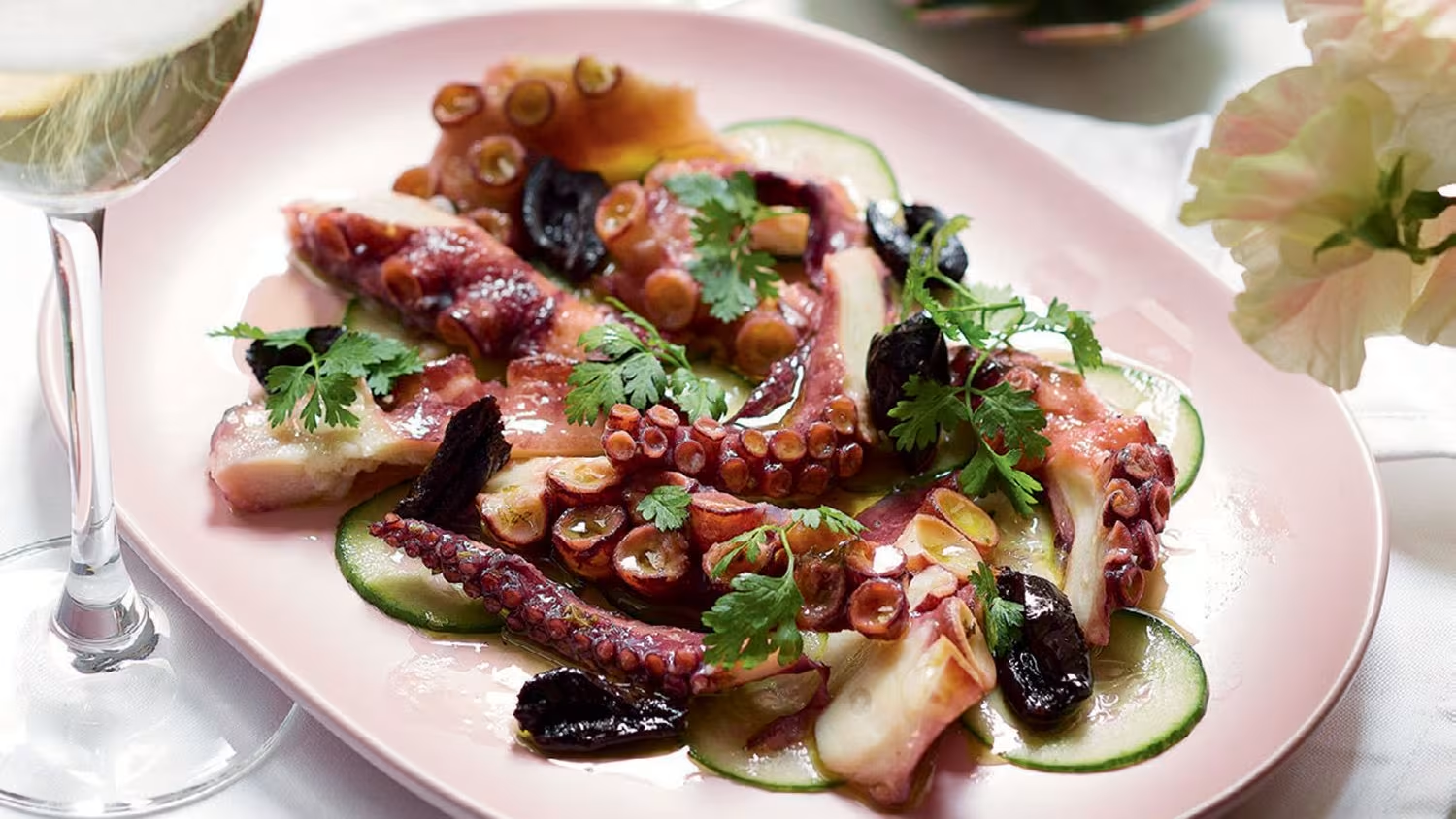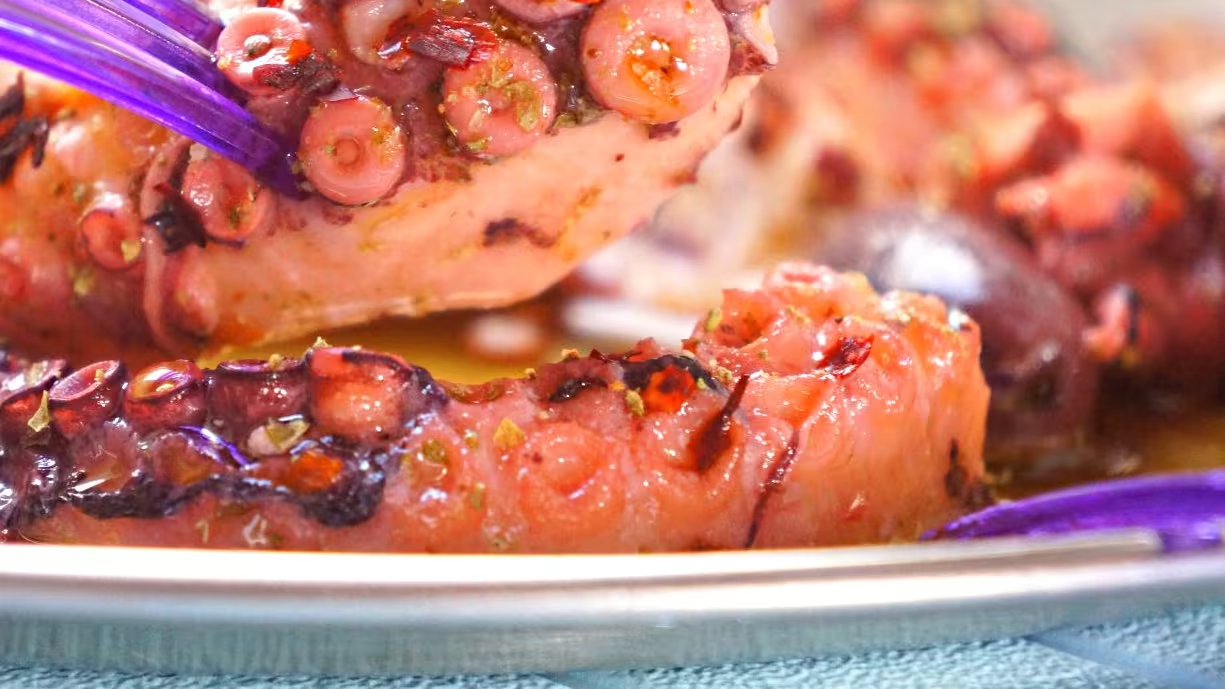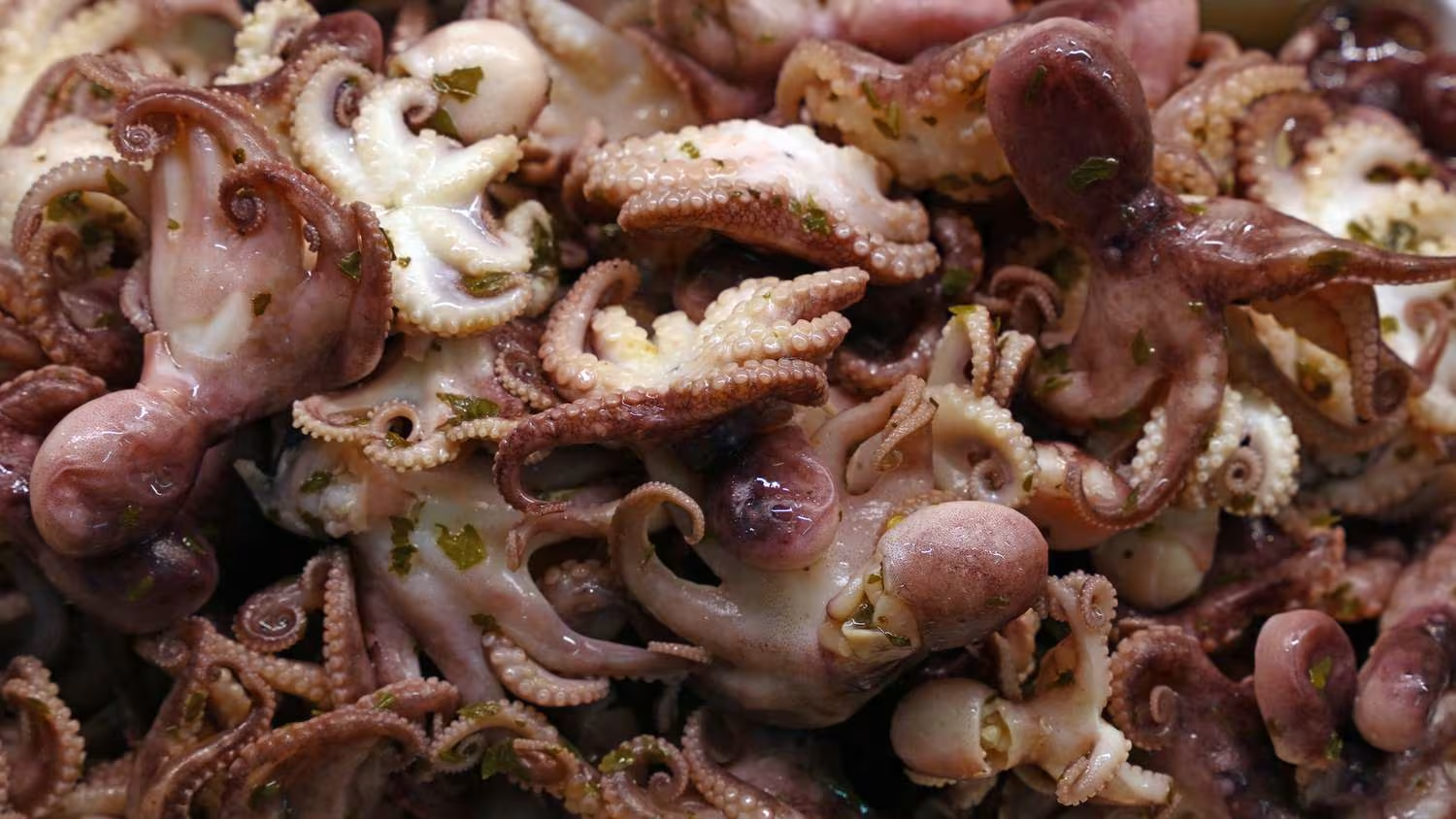
Deliciously Tangy Pickled Octopus Recipe: A Seafood Sensation
Written by Jessica Lopez
Published at 07-12-2023
Edited on 03/24/2025 | 04:02 AM
Seafood RecipesCourse: Appetizer
Cuisine: Mediterranean
Difficulty: Moderate
Servings
4-6 servings
Prep Time
20 minutes
Cooking Time
30 minutes
Total Time
50 minutes
Fat
10g
Protein
25g
Carbs
5g
Calories
200 kcal
Are you ready to elevate your culinary repertoire? Our pickled octopus recipe is the perfect way to impress your friends and family with a unique seafood dish that bursts with flavor. This dish is not only a delight for the taste buds but also a feast for the eyes, making it an exceptional addition to any dinner party or gathering. Pickling octopus may sound intimidating, but don’t worry! With simple ingredients and easy-to-follow steps, you’ll have a gourmet dish ready in no time. Octopus, often regarded as a delicacy in Mediterranean cuisine, pairs wonderfully with tangy vinegar, fresh herbs, and spices.
This recipe highlights the tender texture of the octopus while infusing it with vibrant flavors that will tantalize your palate. Whether you serve it as an appetizer or a main course, this pickled octopus will surely be a conversation starter. Not only is this dish delicious, but it’s also packed with health benefits. Octopus is low in calories and high in protein, making it a guilt-free indulgence.
Plus, the pickling process enhances its shelf life, allowing you to enjoy your homemade creation for days! In this post, we’ll guide you step by step through the pickling process, ensuring you achieve the perfect balance of tanginess and flavor. So, roll up your sleeves and let’s dive into the world of pickled octopus—your taste buds will thank you for it!.


